Searching For Buried Treasure in the Kunming Tea Market
For lovers of puer and all things Yunnan tea, Kunming is a great place to be. Finding a tea shop or a tea house is usually about as hard as walking out your front door and having a look down the street. Puer tea is even a standard item to find in large retail stores like Walmart and Carrefour. I am reminded to be grateful to live here when I read the online laments of puer lovers outside of China (or any of the other Asian countries that have decent stockpiles) who have to endure lengthy shipping times or take gambles on un-vetted Taobao sellers in the quest for their cakes (although I should admit that the situation is getting better thanks to the increasing number of online retailers). So where’s the best place to find tea in Kunming? A lot of people would probably assume Kunming the tea market.
I’m not going to assert whether the tea market is or isn’t the best place to find tea, because I really don’t know. All I have to go on are my own experiences going there, which are a mix of excitement, overwhelm, and frustration – often appearing in that order. At this point I also concede that it’s not really accurate to paint a picture of Kunming as this magical place where it rains Bing Dao and cakes of Lao Ban Zhang grow on the side of the road. For all the good tea there is here, you can find a bad tea. We’ll go deeper into tips for buying tea in China another time, but it’s sufficient to say that you usually get what you pay for.
Coomi and I paid a visit to the Jin Shi and Xiong Da (both are right next to each other) tea markets the other day when we by chance found ourselves on the North side of the city. While we only sampled 3 teas from 2 shops, the results were disappointing, despite being teas from two of Yunnan’s more sought after, and consequently expensive, regions. Aside from drinking at two shops, we entered several others and encountered varying dynamics, which seemed to correlate with whether the foreigner (I) was accompanied by someone who is Chinese or not.

I want to clarify that for the most part I feel that Kunming treats foreigners pretty well. Although we stand out and get pointed and stared at a lot in public, people in everyday situations don’t make efforts to rip me off or treat me too much more differently than a normal customer, except maybe double checking to see if I am able to eat spicy food. The few times I have felt that someone is trying take advantage have been in touristy situations, like trying to catch a cab in front of the train station, and now maybe a handful of shops in the Kunming tea market. Again, this place is overwhelming. You will probably need several days if you plan to visit each tea shop in the market, especially if you take up their offers to drink with them.
Shop #1: This place only sold aged tea, and sold a lot it. I got a good feeling from this shop. I walked in by myself and the owner smiled and greeted me, but didn’t drop what she was doing. She asked what I was looking for, to which I replied “randomly looking”. She told me not to randomly look, but conscientiously look. I took her up on that and some white and red labels immediately caught my eye. Similar to a 2007 7581 shou puer that we have a few bricks of kicking around, I asked what year it was and she told me 1998. When I asked if they have any 2007 production she replied that they don’t have anything that new. So there went that for the price comparison test.
Shop #2: As Coomi lagged behind looking at tea ware, I entered this shop by myself. The young worker apprehensively looked at me before greeting me. She was obviously not sure how I would respond, outside of saying “ni hao”. She boldly continues and tells me I’m looking at sheng puer. I smile and tell her I know. As soon as she realized I understood her it sparked the process of asking about whether I understand Chinese, how long I’ve studied, where I’m from, etc. Apparently she has never had a foreigner come in who could speak enough Chinese, so she usually just communicates with them using a calculator. She was warm and friendly, and after two attempts at getting me to sit down and drink some tea I obliged.
While she was pouring the tea I asked from which year and region it was. 2010 Yiwu, she replied. I thought to myself, alright, this should be fun! My expectations were instantly crushed. The taste was flat, it was tight in my throat and the huigan was non-existent. I have no idea how many times she had already brewed this tea. It wasn’t the first. Perhaps it was already spent by this point? I don’t know. By the second cup Coomi had joined us and carried out most of the communication on our behalf from there. We found ourselves trapped there drinking a tea that we didn’t want to. We eventually pried ourselves away, took a business card and left her with the promise that yes, we will come back with friends to drink tea here. That was a lie.

Shop #3: This one was simply awkward. I again wandered in by myself. They apparently specialized in Dian Hong (Yunnan black tea), which we’ve been enjoying a lot of lately. The family in the shop just watched me from a distance for a few moments, then proceeded to talk about me while I was in earshot. I could pick out them distinctly saying “foreigner has come to buy tea” several times, followed by “do you think he understands?”. I turned around and told them I understood, and added that I don’t study actually study at the university, as the wife had assumed. They laughed awkwardly spoke faster and quieter to each other as I made my exit.
Shop #4: Having completely lost Coomi at this point, I walked into another shop that looked a little more kept up in terms of appearances. The owner seemed nice enough though, and after the standard 20 questions about where I’m from and what I do, we talked about tea. She took me a little more seriously after I told her my wife is from here. While looking at a Bing Dao cake, she told me it was only 240 RMB (~$40 USD). Thanks to my crude Mandarin skills and lack of foreign language filter, I half asked if it’s real Bing Dao, which I immediately felt was somewhat impolite. I winced in my head and then let it go. She explained that this tea was from before Bing Dao’s surge in popularity, so the price is comparatively cheap, unlike this year and last year’s teas which are in the 1000’s of RMB. We chatted a bit more and she offered to make me some tea as well. I declined, but took her card and went off to find Coomi.

Shop #5: This is the hole-in-the-wall representative of the bunch. It wasn’t exactly the most well laid out shop. As I picked up another Bing Dao cake and looked at it, the owner came up to me, blocking my path and keeping me in the front portion of his stall. I kind of wanted to look around more, but I got the feeling I was being intentionally hindered from doing so. Not really interested in anything, I asked how much this 2014 Bing Dao cake was, mostly for for the sake of converstaion. 40 RMB (~$6.50) or 35 RMB each if I bought a tong (7 cakes). Gee, this must be my lucky day, I didn’t think to myself. I gave him a blank look while his eyes darted from side to side and promptly left his store.
Shop #6: With this shop we continued the Bing Dao trend, as they only sold tea from this region. Based on the prices (and that the prices were visibly marked), it seemed legit. Additionally, we also received a thick brochure outlining the quality of their teas, their company history, providing pictures of the trees they harvest from, etc. As usual, the two girls working there offered to drink tea with us and let us sample some. We first chose a 2007, as we have been enjoying some 2007 Bing Dao at home a lot lately and figured it would be a good comparison. At 3600 RMB ($600) per cake, our expectations were high. Unfortunately, just like the Yiwu we drank earlier, the tea didn’t live up to its region’s name/hype. Bing Dao’s trademark characteristic is a smooth, honey-like sweetness, yet this leaned a lot closer to the rougher, more bitter of things, in our opinion. I was confused at this point. The storage of this cake was also significantly different than our Bing Dao. Maybe this had something to do with it? It was stored in Shanghai (more humid) and had a more developed wet taste, but absolutely none of the smoothness or sweetness of our tea at home. I know they’re different producers, but Bing Dao is a small area and I would expect there should be some overlap. Not wanting to be rude, we smiled and agreed with what they said about it and drank it graciously.
The second tea they brewed was a 2015 (the “cheap” stuff, @ only 2800 RMB/Kg). Again, we felt let down. The fragrance was not too present, and by the 3rd or 4th infusion it was getting quite bitter. We lasted close to 20 infusions before leaving. The girl serving us was said that this tea can up to 30 infusions and that it has a lot of endurance. There was no denying that, but it also meant that during its peak its bitterness was overwhelming and enduring. They again talked about the sweetness and how you can still taste the huigan 2 hours later. This was slightly sweeter than its 2007 cousin, but it was no more than 15 minutes after we left that the huigan had left us.
Unlike some of the other stores, I didn’t doubt that this was real Bing Dao. The store checked out in every way, except the most important part – how the tea tastes and feels. I can only speculate as to why the tea didn’t match our expectations or previous experiences with Bing Dao. Processing the tea is extremely important and was perhaps a contributing factor (if not the factor). This was a worthwhile reminder that name and region isn’t everything.
The biggest takeaway from strolling the tea market was not that you can’t find good tea by wandering around, but that you have to work hard for it. Even though we tried two of the more sought after names of Puer tea, neither had an impact. I don’t doubt that with enough digging I’d be able to come home with both some exciting teas and some money left in my wallet. If I were only visiting Kunming for a few short days, that may be the only option, but we’re fortunate to have friends and family in the business to trade and talk with, which in my opinion is usually a better use of time. You’ll also have a more efficient visit if you have a specific cake(s) in mind that you’re looking for. Shop owners will be able to tell you if they have it or not and you can either check it out or be on your way (after refusing their offer to try something else that’s just like what you’re looking for or even better). I also have the feeling that as a foreigner I was more likely to be a target for less-than-honest sales, although I’m sure there are also plenty of Chinese who get bad deals too. For those who can’t speak a word of Mandarin, a lot of teas would truly be a stab in the dark. While my Mandarin is far from fluent, it does allow me to talk about the tea and ask the right questions. Without being able to read the labels or ask questions, the only thing you have to go on is trying the tea, and it may take a while until you hit one that speaks to you.


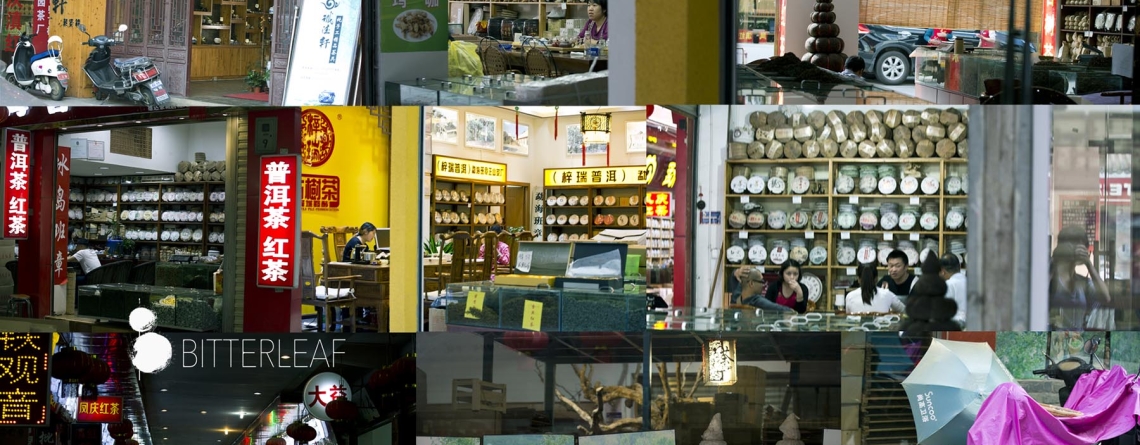
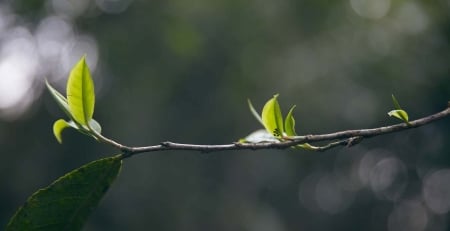
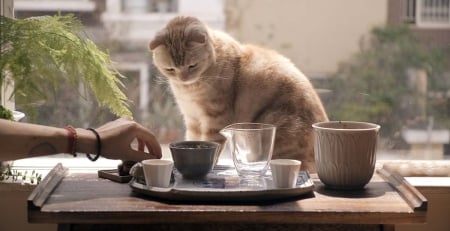
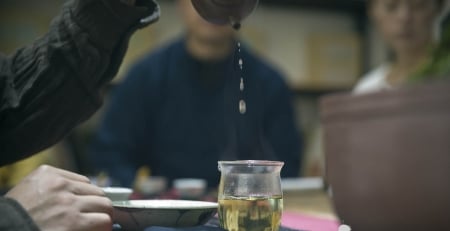
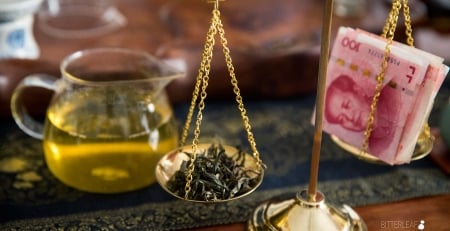
Comments (3)
Great post! Thanks for sharing. I’m working on planning a trip to Kunming next year to explore the tea market and region so this was a great taste.
Glad to be of some help. You’ll have to get in touch when you come visit Kunming!
I find the tea markets a waste of time for western folks . I buy better teas online and the people are knowledgable
Friendly and let you into their taste .